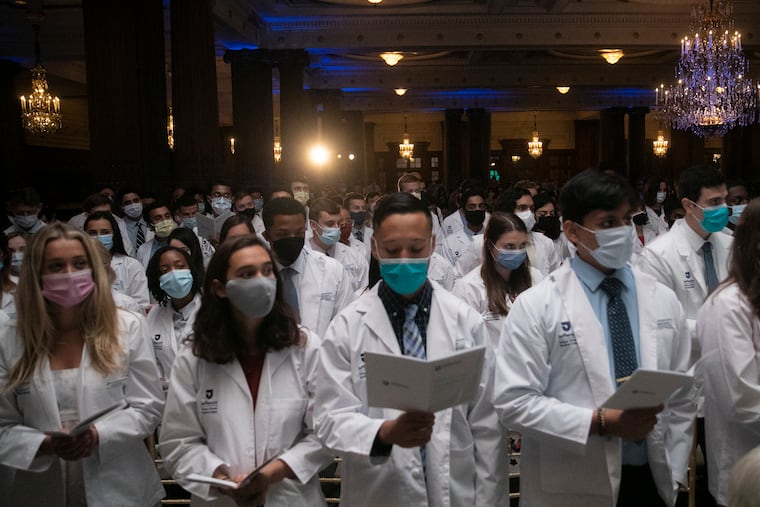We are facing a looming doctor shortage, likely worsened by COVID-19 | Opinion
Congress must take key steps to ensure all Pennsylvanians can find a doctor when they need one.

The COVID-19 pandemic has affected every single Pennsylvanian, whether through the loss of a loved one, a layoff, or getting sick themselves. The health and well-being of medical professionals in our community have also taken a significant toll, yet their struggle has often gone unnoticed as they cared for patients on the front lines. During COVID-19, these individuals risked their lives to save others, working long hours in some of the most challenging situations.
What’s more, there simply aren’t enough doctors to go around — a problem that existed long before COVID-19. A recent report by the Association of American Medical Colleges (AAMC) projects that by 2034, there will be a shortage of as many as 48,000 primary care physicians, and a shortage of nearly 80,000 physicians. More must be done to ensure that we reverse this trend before a deficit of medical professionals puts lives at risk.
I fully expect COVID-19 to worsen the doctor shortage. After working for more than a year on the front lines of a pandemic, health professionals are exhausted — and some are traumatized.
» READ MORE: 'I see someone quit every day:' Nurses, in their own words | Expert Opinion
Last year, an emergency room physician in New York City committed suicide, underscoring the difficult and sometimes fatal consequences that can occur when our caregivers’ health struggles largely go unnoticed.
These struggles, if left unaddressed, will lead to doctor burnout, which may force some to either cut back on their hours or leave the profession altogether. In 2018, Pennsylvania had a physician burnout rate of 45% — an alarming figure. Furthermore, Pennsylvania has 139 areas that are experiencing a shortage of primary care providers. That leaves many Pennsylvanians vulnerable when it comes to health-care accessibility.
COVID-19 brought to the surface many inequalities that persist in our health-care system, including the large number of rural, lower-income, and generally underserved communities that need more robust health-care infrastructure to stay healthy. And we cannot have a healthy economy without healthy communities.
The doctor shortage will almost certainly worsen over time. As Americans grow older — including those in the medical community — there will be fewer doctors and more patients. We must take immediate action to address the shortage of medical expertise.
“As Americans grow older — including those in the medical community — there will be fewer doctors and more patients.”
Luckily, Congress has the ability to bolster the number of medical professionals in several ways — and, in doing so, can ensure that all Pennsylvanians are able to find a doctor when they need one.
Physician training programs are the biggest hurdle to address the shortage. Congress is considering the Resident Physician Shortage Reduction Act, which would bring new doctors into the medical community. Additional legislation would also help turn the tide on doctor shortages and ensure there is an adequate number of medical professionals to meet patient demands.
While we won’t solve the doctor deficit overnight, Congress must take steps to address physician burnout to safeguard the health of our medical professionals and guarantee all Pennsylvanians will have access to a doctor when they’re in need of care.
Americans came together last year to cheer on our health-care professionals who have remained on the front lines throughout the pandemic. Now it’s time to turn those cheers into action.
Shaughnessy Naughton is the president of 314 Action, which seeks to get more scientists and physicians elected to public office. She lives in Philadelphia.